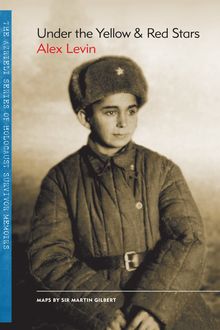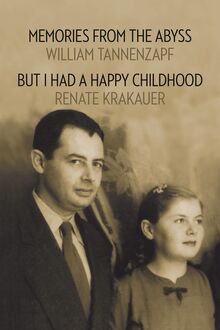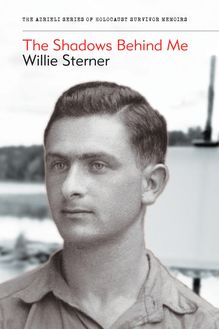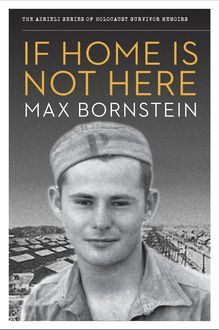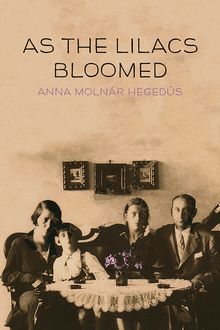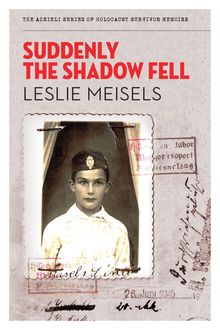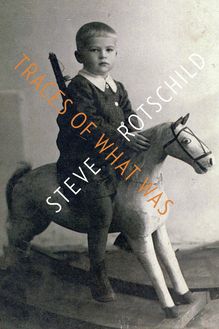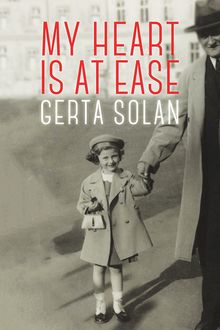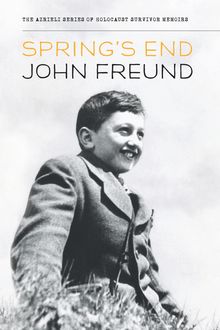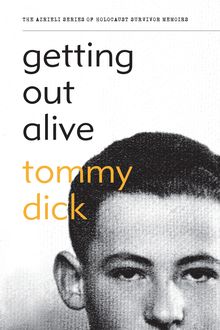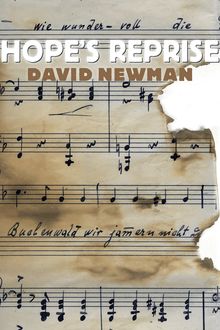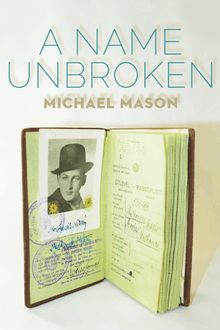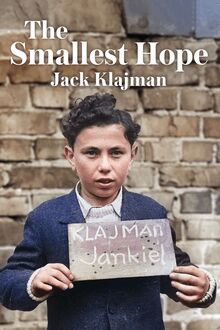-
 Univers
Univers
-
 Ebooks
Ebooks
-
 Livres audio
Livres audio
-
 Presse
Presse
-
 Podcasts
Podcasts
-
 BD
BD
-
 Documents
Documents
-
- Cours
- Révisions
- Ressources pédagogiques
- Sciences de l’éducation
- Manuels scolaires
- Langues
- Travaux de classe
- Annales de BEP
- Etudes supérieures
- Maternelle et primaire
- Fiches de lecture
- Orientation scolaire
- Méthodologie
- Corrigés de devoir
- Annales d’examens et concours
- Annales du bac
- Annales du brevet
- Rapports de stage
La lecture à portée de main
Vous pourrez modifier la taille du texte de cet ouvrage
Découvre YouScribe en t'inscrivant gratuitement
Je m'inscrisDécouvre YouScribe en t'inscrivant gratuitement
Je m'inscrisEn savoir plus
Vous pourrez modifier la taille du texte de cet ouvrage
En savoir plus

Description
Sujets
Informations
| Publié par | Azrieli Foundation |
| Date de parution | 01 septembre 2012 |
| Nombre de lectures | 0 |
| EAN13 | 9781897470671 |
| Langue | English |
Informations légales : prix de location à la page 0,0300€. Cette information est donnée uniquement à titre indicatif conformément à la législation en vigueur.
Extrait
The Shadows Behind Me
Willie Sterner
The Azrieli Series of Holocaust Survivor Memoirs
INTERNATIONAL ADVISORY COUNCIL
Doris Bergen, Chancellor Rose and Ray Wolfe Chair in Holocaust Studies, University of Toronto
Sara R. Horowitz, Director of the Israel and Golda Koschitzky Centre for Jewish Studies, York University
Nechama Tec, Professor Emerita of Sociology, University of Connecticut
Avner Shalev, Chairman of the Yad Vashem Directorate, Jerusalem
Naomi Azrieli, Publisher
Andrea Knight, Managing Editor
Arielle Berger, Assistant Editor
Mia Spiro, Associate Editor
Elizabeth Lasserre, Senior Editor, French-Language Editions
François Blanc, Editor, French-Language Editions, and Cartographer
Aurélien Bonin, Assistant Editor / Researcher, French-Language Editions
Elin Beaumont, Program Coordinator
Tim Mackay, Program Assistant
Susan Roitman, Executive Coordinator
Mark Goldstein, Art Director
Nicolas Côté, Layout, French-Language Editions
Contents
Series Preface: In their own words...
Introduction
Maps
Dedication
Author’s Preface
Life in Wolbrom and Krakow
Occupation and Loss
Hard Labour
Oskar Schindler
KZ Mauthausen-Gusen II
Liberation
Chief of the Jewish Police
Time to Leave
Speaking Out
Yizkor
Glossary
Photographs
Eva’s Story
Index
Copyright
About the Azrieli Foundation
Also Available
Series Preface: In their own words...
In telling these stories, the writers have liberated themselves. For so many years we did not speak about it, even when we became free people living in a free society. Now, when at last we are writing about what happened to us in this dark period of history, knowing that our stories will be read and live on, it is possible for us to feel truly free. These unique historical documents put a face on what was lost, and allow readers to grasp the enormity of what happened to six million Jews – one story at a time.
D avid J. Azrieli , C.M., C.Q., M.Arch
Holocaust survivor and founder, The Azrieli Foundation
Since the end of World War ii, over 30,000 Jewish Holocaust survivors have immigrated to Canada. Who they are, where they came from, what they experienced and how they built new lives for themselves and their families are important parts of our Canadian heritage. The Azrieli Foundation’s Holocaust Survivor Memoirs Program was established to preserve and share the memoirs written by those who survived the twentieth-century Nazi genocide of the Jews of Europe and later made their way to Canada. The program is guided by the conviction that each survivor of the Holocaust has a remarkable story to tell, and that such stories play an important role in education about tolerance and diversity.
Millions of individual stories are lost to us forever. By preserving the stories written by survivors and making them widely available to a broad audience, the Azrieli Series of Holocaust Survivor Memoirs seeks to sustain the memory of all those who perished at the hands of hatred, abetted by indifference and apathy. The personal accounts of those who survived against all odds are as different as the people who wrote them, but all demonstrate the courage, strength, wit and luck that it took to prevail and survive in such terrible adversity. The memoirs are also moving tributes to people – strangers and friends – who risked their lives to help others, and who, through acts of kindness and decency in the darkest of moments, frequently helped the persecuted maintain faith in humanity and courage to endure. These accounts offer inspiration to all, as does the survivors’ desire to share their experiences so that new generations can learn from them.
The Holocaust Survivor Memoirs Program collects, archives and publishes these distinctive records and the print editions are available free of charge to libraries, educational institutions and Holocaust-education programs across Canada, and to the general public at Azrieli Foundation educational events. Online editions of the books are available free of charge on our web site, www.azrielifoundation.org .
The Azrieli Foundation would like to express appreciation to the following people for their invaluable efforts in producing this series: Mary Arvanitakis, Josée Bégaud, Florence Buathier, Franklin Carter, Mark Celinscack, Darrel Dickson (Maracle Press), Andrea Geddes Poole, Sir Martin Gilbert, Pascale Goulias-Didiez, Stan Greenspan, Karen Helm, Carson Phillips, Pearl Saban, Jody Spiegel, Erika Tucker, Lise Viens, and Margie Wolfe and Emma Rodgers of Second Story Press.
Introduction
Willie Sterner’s remarkable account of life in wartime Poland illustrates the incredible resilience of the human spirit. From the moment the Germans invaded his homeland in September 1939 until his liberation by the Americans in May 1945, he met each new challenge – and there were many, to be sure – with courage and determination. Sterner was a painter by trade who had learned his skills as a young man working for his father’s company. Painting served a dual purpose for Sterner during the war. Not only did it help him to survive his terrible six-year ordeal – even the notorious commandant of the Płaszów forced labour camp seemed to appreciate his painting skills – but his passion for his trade also helped him hold onto some shred of human dignity in the inhumane and degrading environment that the Nazis created. Painting reminded him of his family, which meant everything to Sterner, and even at his lowest point, when he was in complete shock and shattered by the deliberate murder of his family in the summer and fall of 1942, he still did not give up and somehow found the strength to carry on. Courage and tenacity characterize Sterner’s life.
Born into an observant and close-knit Jewish family the year after World War I ended, Willie Sterner spent the first decade of his life in Wolbrom, Poland, a small town just north of Krakow. In 1928, his father, who was also a painter by trade, moved his large and growing family to Krakow. Sterner recalls with joy his coming of age and, by his own admission, he had a normal and happy childhood growing up in Poland.
In the heart of east-central Europe, Poland had long been an important centre of Jewish migration and culture and in the interwar years it was home to the largest Jewish community in Europe. The years between the two world wars, some argue, mark a high point or golden age in Polish and Polish-Jewish history. After 150 years of its territory being partitioned between Russia, Prussia and Austria, Poland was liberated from foreign rule and recognized as an independent state in 1919, the same year that Willie Sterner was born. 1 Poland’s rebirth was not so easy, though, and in the years immediately following independence it struggled to become a nation-state. The Russians were unhappy about Polish independence and for two years fought the Poles for control of the borderlands between the two countries. The issue was finally resolved on March 18, 1921, when Poland and Russia signed the Treaty of Riga that officially defined Poland’s eastern frontier.
Territorial settlements were the least of Poland’s worries, however. In order to build a viable nation-state, it was also crucial for the newly independent country to create its own political, economic and social institutions. The Entente powers of Great Britain, France and, beginning in 1917, the United States, had fought for the right to national self-determination and pledged their support, but once independence was granted to the fledgling democracies of east-central Europe, they were offered little in the way of tangible help and were pretty much left to fend for themselves. Some states seemed to have an easier time than others developing democratic institutions. Poland struggled most, not only because it lacked support from the West, but also because of its geography – it was a country sandwiched between two revisionist and increasingly hostile states – Germany and Russia – making it politically (and physically) vulnerable. Border disputes coupled with years of occupation also meant that Poland was not an ethnically pure nation-state. In fact, it was home to sizable minority groups, including large numbers of Germans, Lithuanians, Ukrainians and, of course, 3.3 million Ashkenazi Jews. Unlike its neighbour Czechoslovakia, Poland struggled with establishing democratic processes and power-sharing within and among the various minority groups that made up 30 per cent of its interwar population. Despite all these problems, Willie Sterner and other Polish Jews remember their youth in Poland with great fondness.
Sterner’s nostalgia for this era should not be surprising – the 1939-1945 period brought with it not only the total destruction of his family but the violent end to Polish-Jewish civilization and history as it had existed for centuries. Was Jewish life in interwar Poland in fact, as many scholars have asked, good for the Jews? 2 The answer, not surprisingly, is mixed. There is no question that interwar Poland gave birth to some of the most important ideologies and political movements of modern Jewish history. The Zionist movement, for instance, dominated the political landscape in the interwar period and Sterner’s own father was a committed member of Jabotinsky’s Brigade. Sterner himself recalls his own membership in Akiva, a Zionist youth organization. The Bundists – Jewish socialists – als
-
 Univers
Univers
-
 Ebooks
Ebooks
-
 Livres audio
Livres audio
-
 Presse
Presse
-
 Podcasts
Podcasts
-
 BD
BD
-
 Documents
Documents
-
Jeunesse
-
Littérature
-
Ressources professionnelles
-
Santé et bien-être
-
Savoirs
-
Education
-
Loisirs et hobbies
-
Art, musique et cinéma
-
Actualité et débat de société
-
Jeunesse
-
Littérature
-
Ressources professionnelles
-
Santé et bien-être
-
Savoirs
-
Education
-
Loisirs et hobbies
-
Art, musique et cinéma
-
Actualité et débat de société
-
Actualités
-
Lifestyle
-
Presse jeunesse
-
Presse professionnelle
-
Pratique
-
Presse sportive
-
Presse internationale
-
Culture & Médias
-
Action et Aventures
-
Science-fiction et Fantasy
-
Société
-
Jeunesse
-
Littérature
-
Ressources professionnelles
-
Santé et bien-être
-
Savoirs
-
Education
-
Loisirs et hobbies
-
Art, musique et cinéma
-
Actualité et débat de société
- Cours
- Révisions
- Ressources pédagogiques
- Sciences de l’éducation
- Manuels scolaires
- Langues
- Travaux de classe
- Annales de BEP
- Etudes supérieures
- Maternelle et primaire
- Fiches de lecture
- Orientation scolaire
- Méthodologie
- Corrigés de devoir
- Annales d’examens et concours
- Annales du bac
- Annales du brevet
- Rapports de stage

